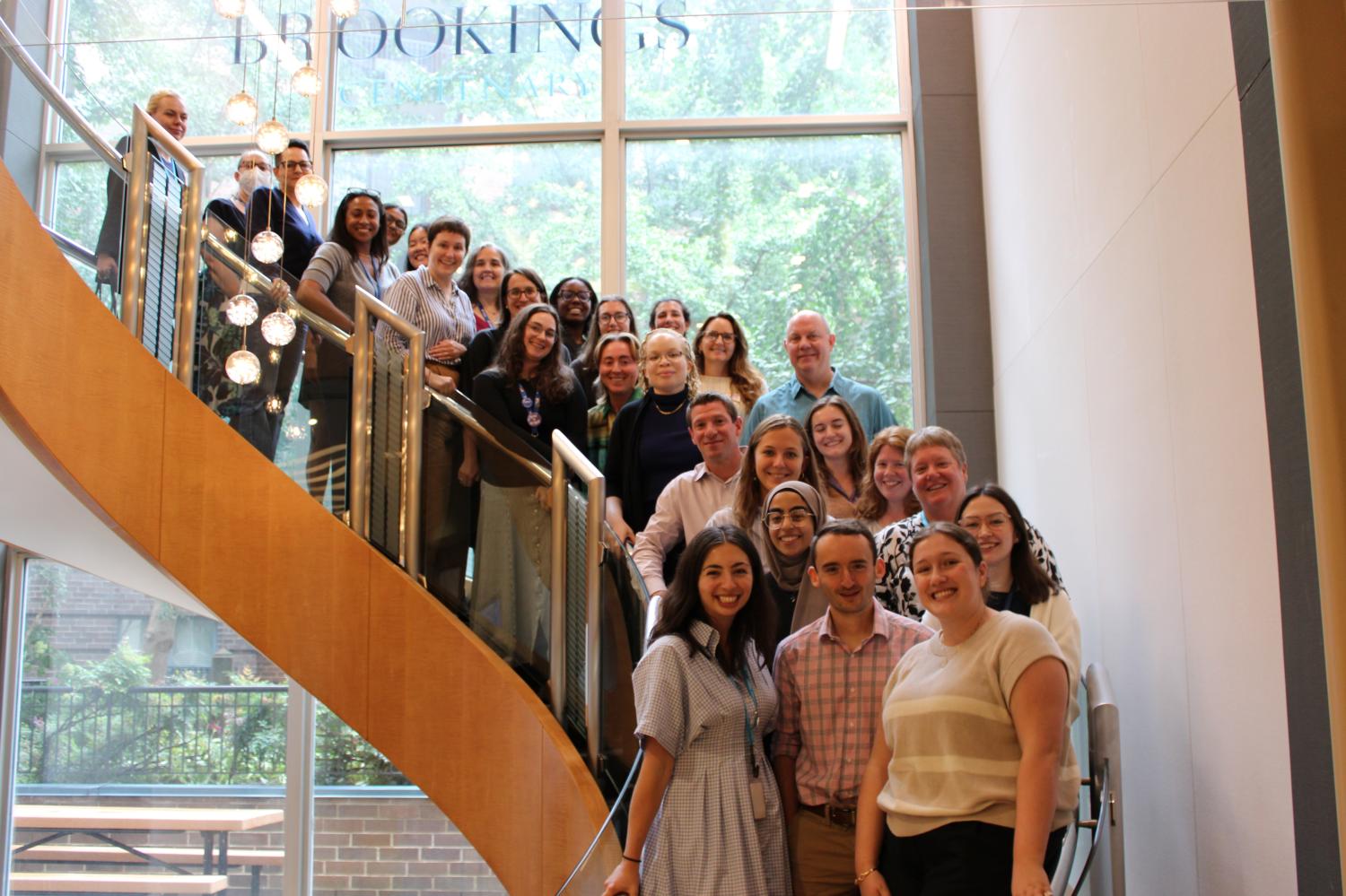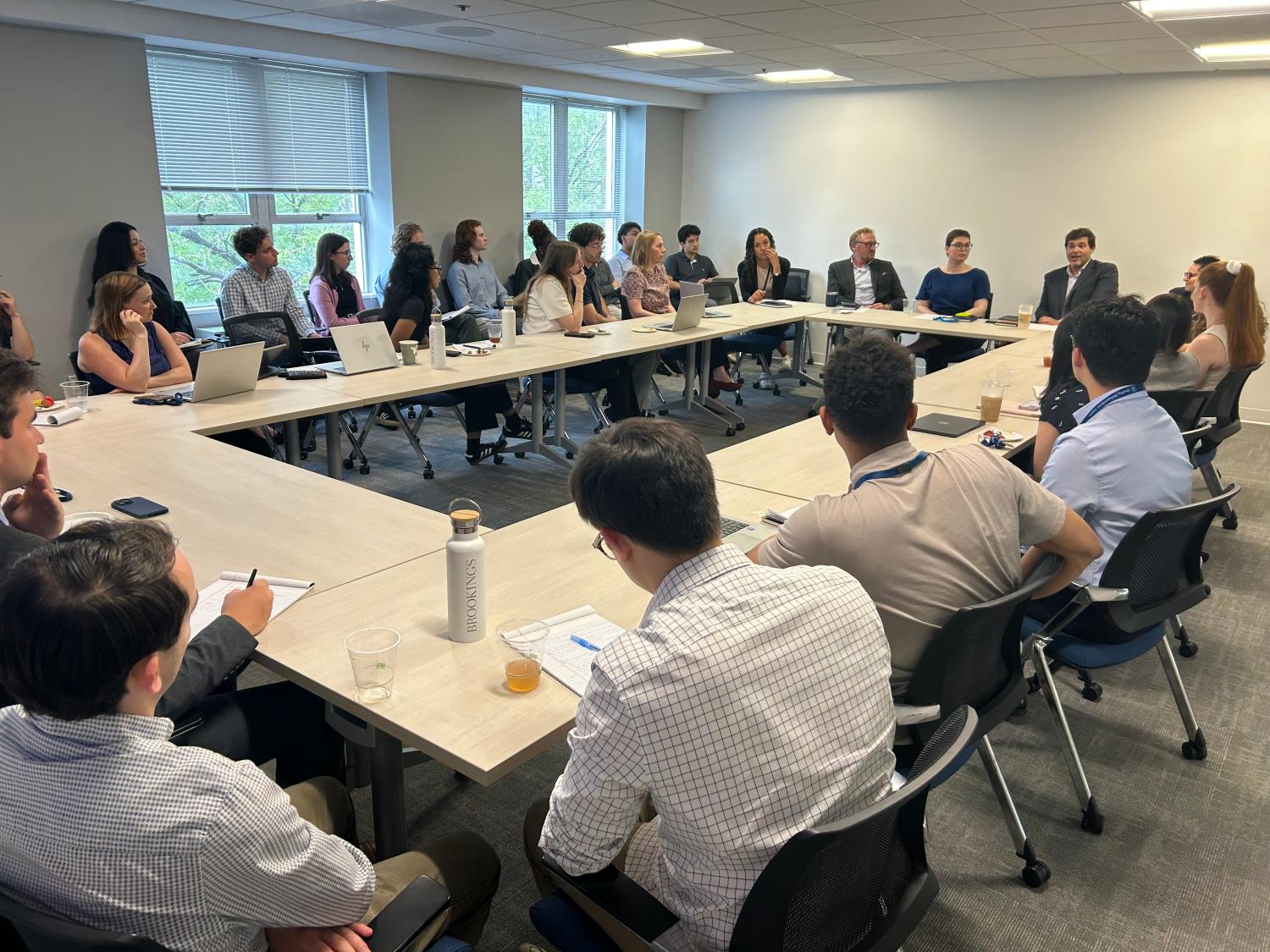The Brookings Institution is committed to supporting inclusion and diversity across all aspects of our work. We recognize that to produce high-quality research that informs innovative, practical policy recommendations, we must strive for a workplace that represents diversity of experience, thought, and personal background. This means ensuring that everyone is heard and empowered to fully participate in Brookings’ mission to equip decisionmakers with nonpartisan research and policy strategies to create a more prosperous and secure country and world.
Since 2018, we have published annually our workplace and Board of Trustee demographics. We remain optimistic that through focus, transparency, and accountability, real progress on diversity and inclusion can be achieved over the long term. These annual reports represent one component of our work toward that end.
Core Commitments
- Supporting and promoting work by Brookings researchers on race, justice, and equity.
- Prioritizing diversity in Brookings events. This includes ensuring that invited speakers and Brookings panelists represent a variety of demographic backgrounds and perspectives on the topics being discussed.
- Providing training opportunities aimed at building both fundamental, shared competencies, and responding to evolving needs. Together, these offerings equip employees to foster an inclusive and respectful workplace.
- Embedding inclusion, equity, and diversity in our human resources practices, including the regular analysis of the recruitment and selection processes.
- Continuing to leverage our jobs framework to ensure equitable and consistent treatment across the Institution.
- Celebrating the diversity of our staff through Heritage Months and other cultural observances and supporting Affinity Groups that provide employee-led programming and engagement opportunities for staff.
Impact Stories
- Mentoring Program
- Echidna Global Scholars Alumni Network
- Heritage Months
- Workplace Norms Working Group
- Building Community Connection
Our Workforce
Percentage data may not sum to 100% in some categories due to rounding.
Past Years Data
Due to rounding, some numbers may appear as 0% when there is <0.5% representation in that category.
Our Methodology
How
The source of this dataset is based on a questionnaire completed by all Brookings employees upon hire. The categories for race and gender are determined by the federal government for workforce reporting. The categories used for generation identification come from earlier work by Pew Research Center.
- Generation Z: born 1997 to 2012
- Millennial: born 1981 to 1996
- Generation X: born 1965 to 1980
- Baby Boomer: born 1946 to 1964
- Silent Generation: born 1928 to 1945
Disclaimer: Brookings is required to submit annual workforce demographic data to the U.S. Equal Employment Opportunity Commission (EEOC). As part of this process, employees are invited to voluntarily self-identify their race/ethnicity, age, and gender using the categories listed above, which are defined by the EEOC. Where information is not self-reported, employment records or other available information may be used for reporting purposes. We recognize these categories provide only a limited view of our community; therefore, we consider them alongside other factors in building a workplace that is welcoming to all.
The Numbers
As of July 1, 2025, our staff headcount was 416 employees, who are primarily located in Washington, D.C. This includes:
- Our Leadership Team (12): President and Vice Presidents
- Our Fellows/Senior Fellows (108): Brookings Resident Scholars
- Our Research Support (73): Research Assistants, Research Associates, and Research Analysts
- Our Operational Teams (223): Central and program positions in Management, Operations, Communications, Development, Facilities, Finance and Investments, Human Resources, Library, Legal, and Information Technology
This dataset does not include our nonresident scholars, as they are not employees.





